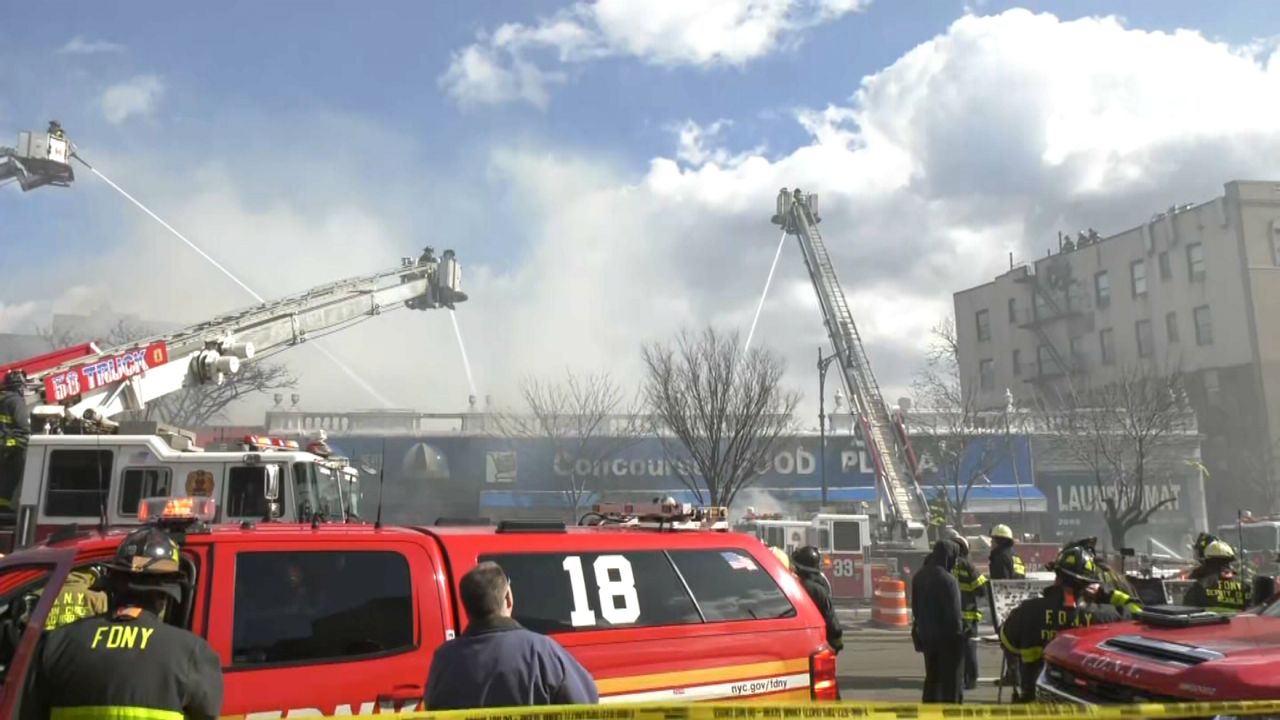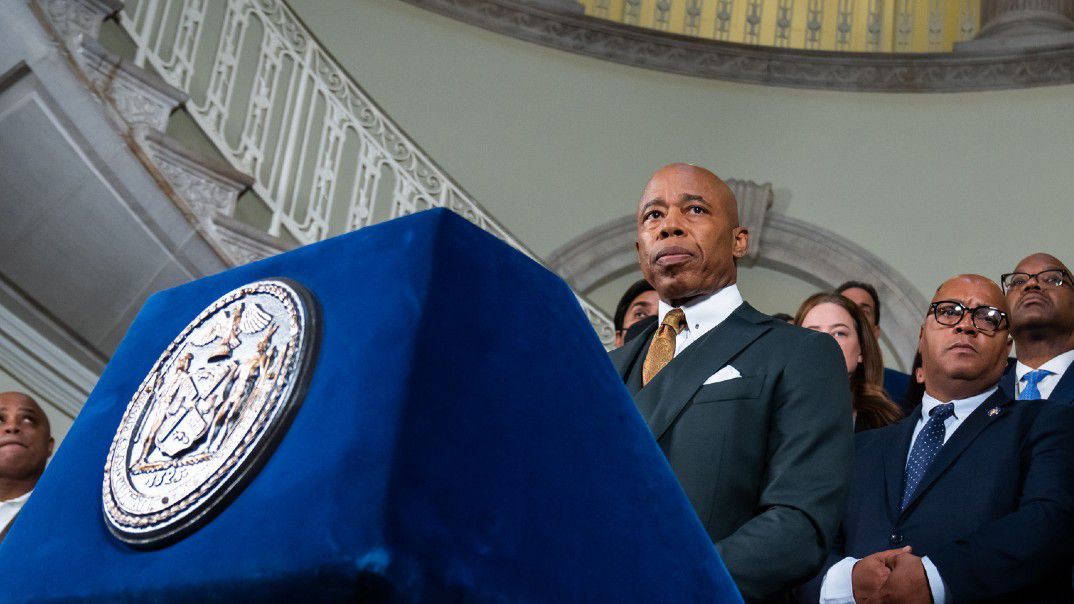The city received permission from the state to house migrants at the former Lincoln Correctional Facility in Harlem, the mayor's office said Saturday.
Lincoln Correctional Facility, a 10,000-square-foot building facing the north side of Central Park, had housed immigrants from the Young Women's Hebrew Association and U.S. soldiers during World War II before becoming a minimum-security jail.
Former Gov. Andrew Cuomo closed the jail in September 2019, and the site has been vacant since.
The city says it will work with the state to open "an emergency respite center" at the facility.
Officials say that more than 70,000 migrants have arrived through the city's intake centers since last spring, and hundreds more arrive in the city every day.
Migrants will not be housed in jail cells, City Hall says.
"We're grateful to the state for providing this site and partnering with the city to open this space as a temporary site for asylum seekers as New York City continues to face this humanitarian crisis," a City Hall spokesperson said in a statement.
The city spokesperson also called for "additional financial and operational support from our partners."
Two months ago, the state announced their desire for Lincoln Correctional Facility to be redeveloped.
Gov. Kathy Hochul released a request for proposal in March, searching for a tenant that would "create a vibrant and sustainable development that maximizes economic potential, supports job creation and meets the growing demand for affordable housing in New York City," the governor's office said.
Now, housing migrants at the facility is "a temporary and short-term use of Lincoln," state officials said.
"The state's plans for the site continue to be to move forward in the months ahead to redevelop it as affordable housing," the governor's office said. "We continue to join our partners at all levels of government to call for a permanent, federal solution to this crisis."
The announcement of the temporary shelter opening in Harlem comes in the wake of Albany, Delaware and Columbia counties joining more than 30 other counties from across the state in declaring a state of emergency over what Rockland County officials described in a statement as “irreparable harm that would be caused by Mayor Eric Adams attempting to transform hotels and motels across the state into homeless shelters.”
Some residents expressed their thoughts on the spacing being used to house migrants.
Kokou John, who is raising two teenagers, says for more than 15 years, he has felt very safe living just down the block from what used to be a minimum security men’s prison.
But his support for the shelter is not without concern.
“We have to help people, so I have no problem,” John said. “My concern is I just want to be safe, so if the city put them there, they have to make sure that they protect people in the neighborhood.”
For about a year, James Love of Texas told NY1 he has been living in a Harlem shelter that is just steps away from the former prison.
“I [have] been in a shelter for a long time and New York helped me out with the shelters,” he said.
Love said as a person who has also received housing support from the city and who can relate to the struggle of the migrants, he looks forward to welcoming them to the block.
“It’s good to have some neighbors, man,” Love said. “It’s good to have some new friends. It’s good to have a new environment to look for.”
It is not clear the exact date when the former prison will be ready to welcome its first wave of adult migrants.







